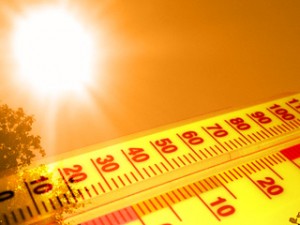With temperatures set to soar, forecasts suggest a climb above 80F (28C) during the next weeks. Whilst we are not yet in a heatwave, being prepared for higher temperatures is a good idea.
 Older people’s bodies in particular are often unable to adjust to sudden changes in temperature, which makes them more susceptible to heat exhaustion and heat stroke. Doctors have warned that hot nights are particularly dangerous for the elderly as it is more difficult for their bodies to recover from heat stress caused during hot days.
Older people’s bodies in particular are often unable to adjust to sudden changes in temperature, which makes them more susceptible to heat exhaustion and heat stroke. Doctors have warned that hot nights are particularly dangerous for the elderly as it is more difficult for their bodies to recover from heat stress caused during hot days.
With this in mind, here are a few tips on how to stay safe:
1. Avoid the hottest times of the day (between 11am – 3pm) – if you do need to venture out make sure you aren’t outside for long periods of time and find shady spots when you can.
2. Keep hydrated – even if you’re not thirsty it’s important to drink plenty of water or fruit juice to replace fluids lost during sweating. Avoid caffeine or alcohol which increase dehydration.
3. Think lightweight – choose clothing which is loose, lightweight, light coloured and breathable, such as a white linen or cotton shirt.
4. Cool down – take cool showers and baths when possible. If you’re out and about, use a cotton hankie soaked in cool water and place it on the back of your neck and on your wrists.
5. Cover up – in addition to wearing cooler clothing it’s also important to remember a hat. No matter whether it’s a cotton baseball cap or a straw boater, headwear will help to keep your face in the shade.
6. Pick the perfect spot – seek out the coolest areas of your home during warmer weather. Keep curtains and blinds closed to prevent sun heating up rooms, especially your bedroom.
7. If safe, leave windows open during the night.
8. Turn off non-essential lights and electrical items.
A printable leaflet with top tips for staying cool during hot weather can be downloaded here.
If you would like to keep up-to-date with the latest forecast, click here to go to the Met Office Heat Health website.
